Regional election in Madrid, 28 May 2023
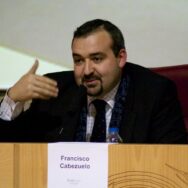
Francisco Cabezuelo
Professor, Complutense University of MadridIssue
Issue #4Auteurs
Francisco Cabezuelo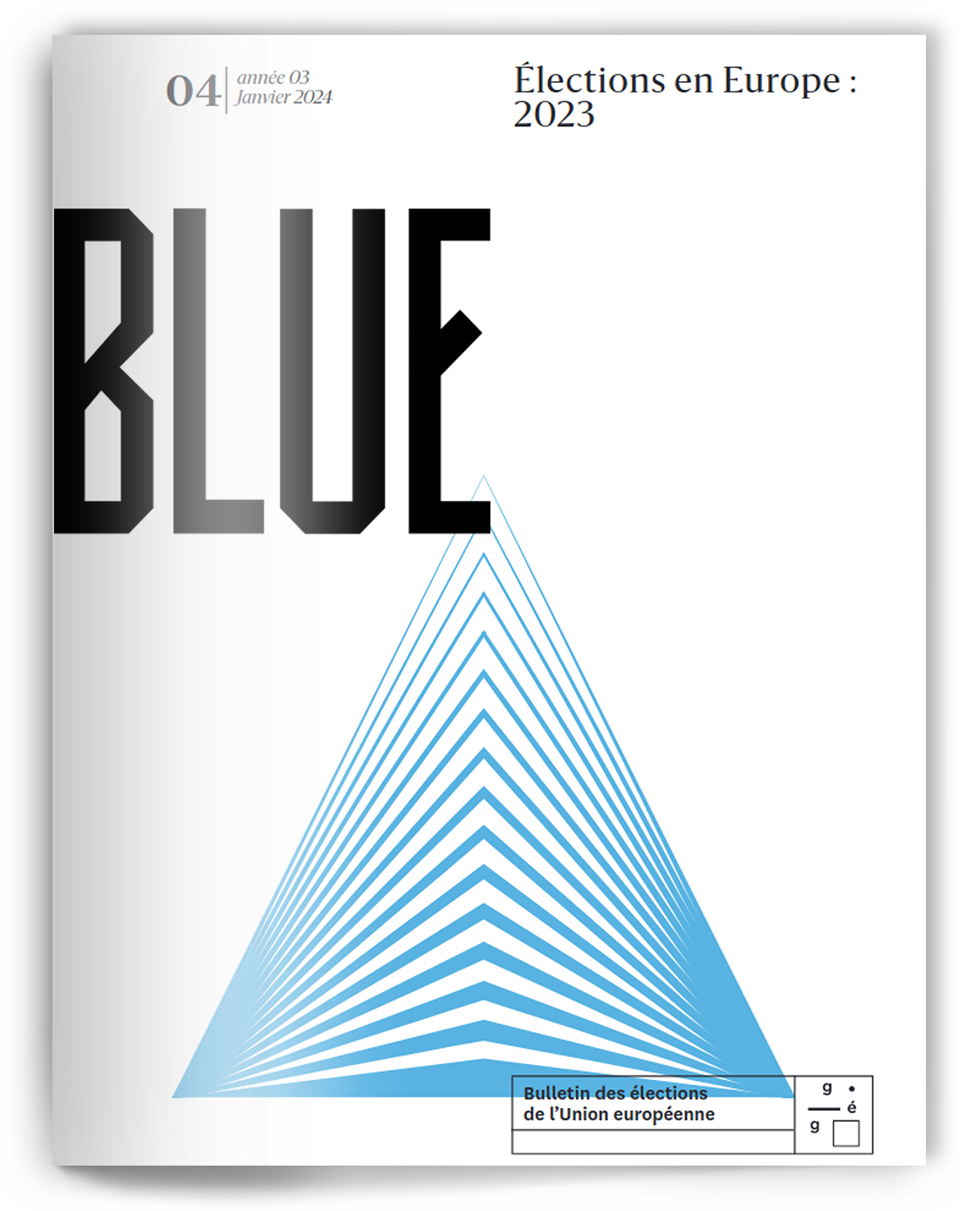
Issue 4, January 2024
Elections in Europe: 2023
The Autonomous Community of Madrid, a uniprovincial region and the main economic, cultural and political center of Spain, held elections to renew its regional parliament on May 28, 2023. With the Popular Party (PP) winning an absolute majority of both votes and seats, the election’s outcome was clear. Twelve other Spanish regions also elected their regional and municipal representatives on that same day. In the Community of Madrid, the last autonomic elections had been held in 2021 in a hasty manner after the breakup of the coalition government. In 2023, the center-right PP and its lead candidate Isabel Díaz Ayuso eventually achieved their goal of forming a government without junior political partners in the richest region of Spain.
With respect to the previous election held on May 4, 2021, the PP increased its seat share from 65 to 71, in a parliament with a total of 135 seats (majority: 68 seats). At first, this regional result seemed to initiate a change of cycle in Spanish politics. However, the PP victory in Madrid did not translate into another absolute majority for the national leader of the PP in the general elections. In Madrid, the conservative party even lost votes compared to the regional elections held two months earlier.
Díaz Ayuso’s strategy has again been characterized by constant opposition to the policies of the Spanish Government presided by Pedro Sánchez (PSOE), which has found in the Community of Madrid and its president its most vocal opponent in the years following the Covid-19 pandemic. During the past term, the relations between the national and regional executives have been marked by several controversies and constant clashes. In addition, the booming economic, touristic and cultural situation in Madrid has helped Ayuso develop a successful political narrative around her style of regional management. Ayuso’s candidacy was able to win more seats than all the left-wing parties combined and left the other right-wing party, Vox, in the background. As a result, the PP no longer needs to forge a coalition agreement with Vox to remain in power.
It is worth noting that Ayuso did not win the first election in which she ran in 2019. Her candidacy was unexpected and her appointment without primaries from the party apparatus sparked controversy. However, in just under four years, she has managed to become an important political figure on the right and has been hugely influential with other regional party leaders.
Turnout and electoral system
A total of 3,413,819 citizens over 18 years of age, out of a total population of 5,211,944 inhabitants, were called to vote in the elections to the Assembly of Madrid in 2023 to elect its XIII legislature. The turnout was 65.5 percent, down 6.2 percent from the high turnout of 2021, which exceeded 71 percent.
In the Madrid parliament, a total of five political parties held seats in the XII legislature from 2021 to 2023. Given the applicable 5-percent threshold, in the XIII legislature only four parties obtained seats. The Podemos-Izquierda Unida-Alianza Verde coalition, which only reached 4.76 percent of the votes, did not obtain parliamentary representation.
A single winner and some new faces
The Popular Party (PP) led by Isabel Díaz Ayuso has been the undisputed winner of this election, in which she won a broad absolute majority. Ayuso, who is known for her expertise in digital communication and her social media presence, is an expert journalist and graduate of the Faculty of Information Sciences of the Complutense University of Madrid. Her public appearance and press strategy proved very effective. In this election campaign, she paired with the popular mayor of Madrid, José Luis Martínez Almeida, with whom she organized many joint rallies and public events. The smooth collaboration between the two candidates generated a climate of trust and understanding between the two leaders, which, in the public’s perception, extended to their respective regional and municipal administrations. In addition, Ayuso was strengthened by her internal struggle within the Partido Popular with the former national leader of the party, her personal friend Pablo Casado, who ended up abandoning his office and leaving public political life in the aftermath of her conflict with Ayuso. This further reinforced the influence of the Madrid leader at the national level.
Mónica García headed the left-wing and environmentalist list Más Madrid-Verdes Equo (MM-VQ). Since the autonomic elections of last 2021, she had been the leader of the opposition and head of the left in the Assembly of Madrid. Mónica García is an anesthesiologist in the public health system who led a social movement of health professionals supported by the PSOE and other left-wing parties.
The Spanish Socialist Workers’ Party (PSOE), who leads the Spanish Government, is only the third-largest party in the Community of Madrid. The PSOE’s leader in Madrid is Juan Lobato, a lawyer and technical economist at the State Treasury and the former mayor of the town of Soto del Real. Lobato replaced the former minister Ángel Gabilondo Pujol as party leader. Gabilondo, who had won the 2019 regional election, failed to become regional president due to the coalition between the two right-wing parties. In 2021, the socialists obatined their worst result ever in an autonomic election in Madrid.
The most right-wing party running in this election was Vox, who was led once again by its candidate Rocío Monasterio. An architect and politician with strong family ties to the Cuban exile, the leader of Vox in the Community of Madrid supported Díaz Ayuso’s bid for regional president but had recently refused to approve the budget presented by Ayuso’s government. Vox is a strongly nationalist party that bears similarities to Matteo Salvini’s Lega and Marine Le Pen’s National Rally. It develops a strong public discourse in support of traditional family values and the victims of terrorism.
Finally, Alejandra Jacinto Uranga led the Podemos-Izquierda Unida-Alianza Verde list. The coalition with the least parliamentary representation in the previous elections went from 10 to zero deputies in 2023, failing to reach the five-percent threshold. Alejandra Jacinto succeeded Pablo Iglesias Turrión, who in 2021 was one of the biggest losers of the regional vote, as the leader of the left-wing party alliance. In 2021, Iglesias’s severe defeat had led him to announce that he would give up his seat in the Assembly of Madrid and completely retire from active political activity.
Campaign messages and anecdotes
The campaign has been marked by tension, controversies and a hard confrontation between some candidates, despite Ayuso’s clear status as a favorite. This time Díaz Ayuso replaced her previous slogan “Libertad” (“Freedom”), with which she had managed to mobilize a young and urban electorate in 2021 by promoting freedom of movement, the end of restrictions and libertarian views, by the one-word slogan “Ganas,” which bears the double meaning of “desire” and “victory.”
Both political analysts and media commentators described this campaign as one of the most boring, childish and least interesting in history. According to Lucía Méndez (El Mundo, 27 May 2023) the campaign was “plagued with artificial polemics and banalities,” being the reflection of a current society “trapped in polarization and competing for voters’ attention.” This same analyst considered a few days earlier that “the uncertainty about the results of the polls, the polarization of the political environment and heated discussions about [the Basque separatist party] EH Bildu led the parties to use unsubtle language and an extremely hurtful tone.”
Another controversy arised when the Electoral Board of the Madrid Zone allowed the use of a photograph of one of Diaz Ayuso’s brothers by Podemos-Izquierda Unida-Alianza Verde as part of a communication campaign against the incumbent president. For its part, the Popular Party argued that the picture “could mislead voters as to the authorship” of the campaign as the Podemos logo appeared hidden on one side. The coalition was forced to insert a more visible logo, while still being allow to continue using the image of the PP candidate’s relative.
Results and perspectives
The PP won 47.32 percent of the votes (1,599,186 votes in total), up 2.57 points from 2021. It obtained an absolute majority with 70 deputies, 5 more than it had so far. Ayuso manage to win by attracting centrist and right-wing voters, while the Madrid left suffered a hard blow. All opposition parties together obtained less seats than the Partido Popular on its own.
Más Madrid (MM-VQ) goes from 24 to 27 deputies thanks to an increase in votes from 614,660 in 2021 to 615,171 in 2023. With slightly fewer votes (609,718), the PSOE obtained the same number of seats. The only party losing votes and seats has been Vox, who went from 330,660 votes in 2021 to 245,215 votes in 2023, a loss of more than two percentage points that translates into the loss of three seats, from 13 to 10. In the current legislative term, the PP is no longer dependant on Vox’s support to impose its regional agenda. In addition to Podemos-IU-AV, other formations such as Ciudadanos-Partido de la Ciudadanía and the Animal Party PACMA have been left without representation.
Días Ayuso’s Partido Popular won in 174 of the region’s 179 municipalities. In the capital of Spain, the City of Madrid, the PP achieved 47.7 percent of the votes, MM-VQ 20.1 percent, the PSOE 16.4 percent, Vox 6.6 percent and Podemos 5.1 percent.
The renewed and extended victory of Isabel Díaz Ayuso, who has become the new dominant figure of the Spanish right, has meant a hard blow for the Madrid left. As such, it will likely serve as a model for right-wing parties in other Autonomous Communities. The PP did not win only in Madrid, but also in Aragón, the Valencian Community, Castilla y León, the Balearic Islands, La Rioja and Murcia, although, unlike in Madrid, in most aforementioned regions the PP will need to rely on agreements with other parties to govern.
The result of the 2023 Madrid regional election suggested that a majority of the Madrid electorate opposed Pedro Sánchez’s political course. However, the result of the subsequent general elections held on July 23, 2023 was less clear-cut: with higher turnout, the percentage of votes for the PP in the Community of Madrid fell from 47 to 40, and the PSOE performed better than in the regional ballot.
The data
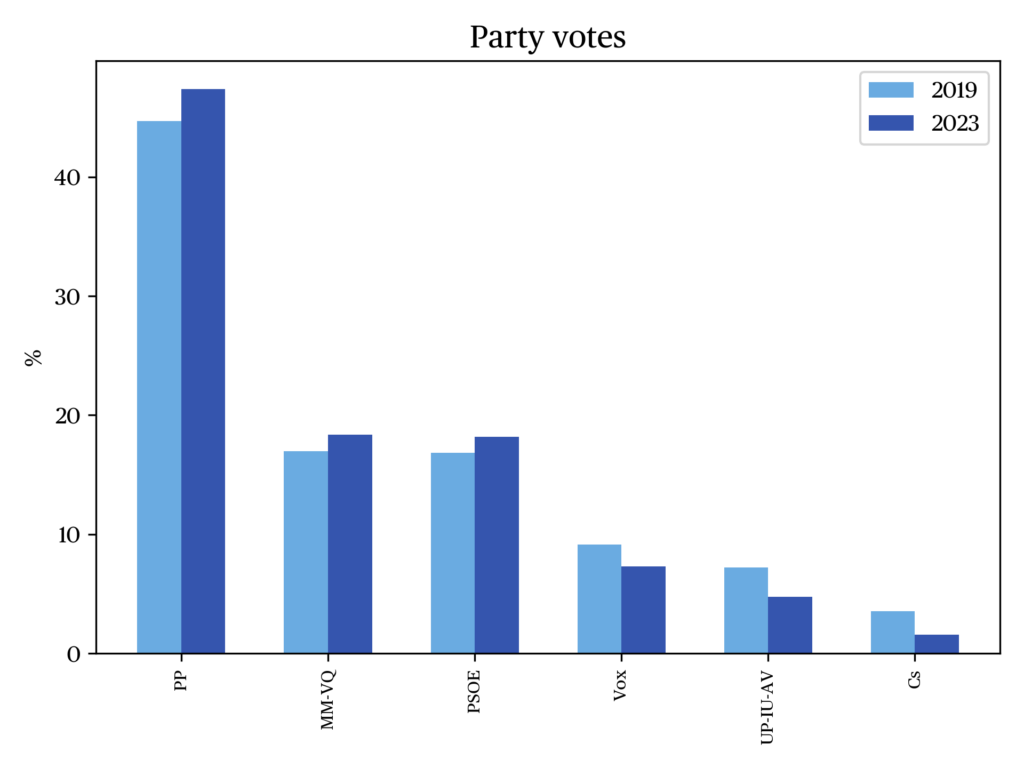
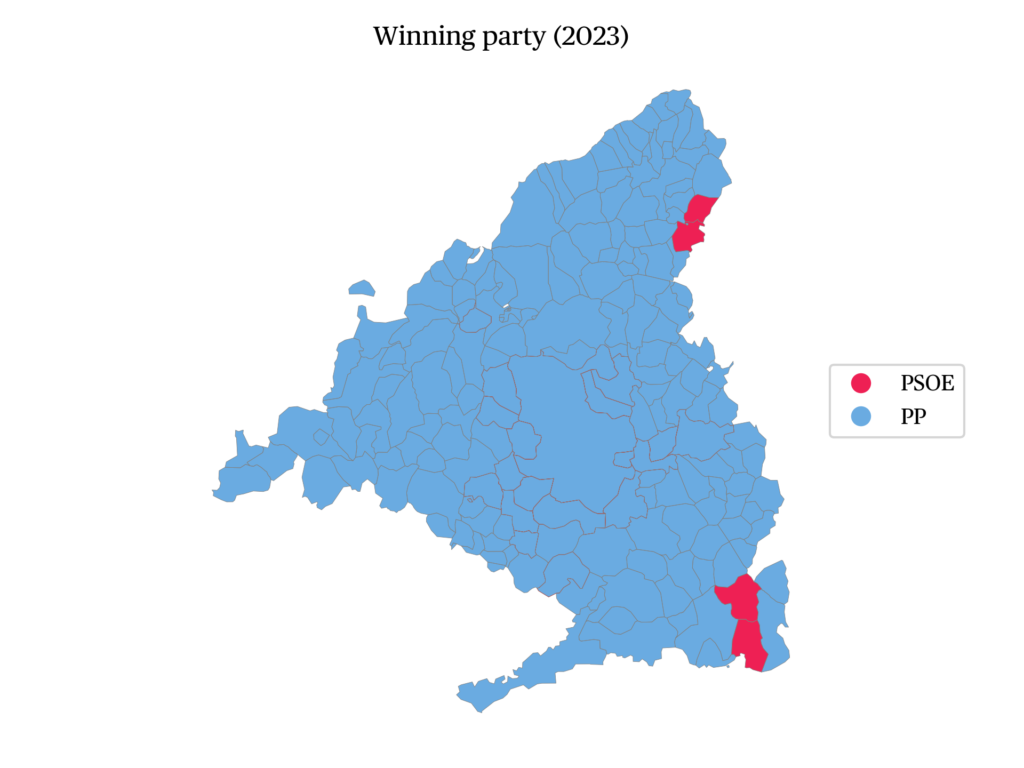
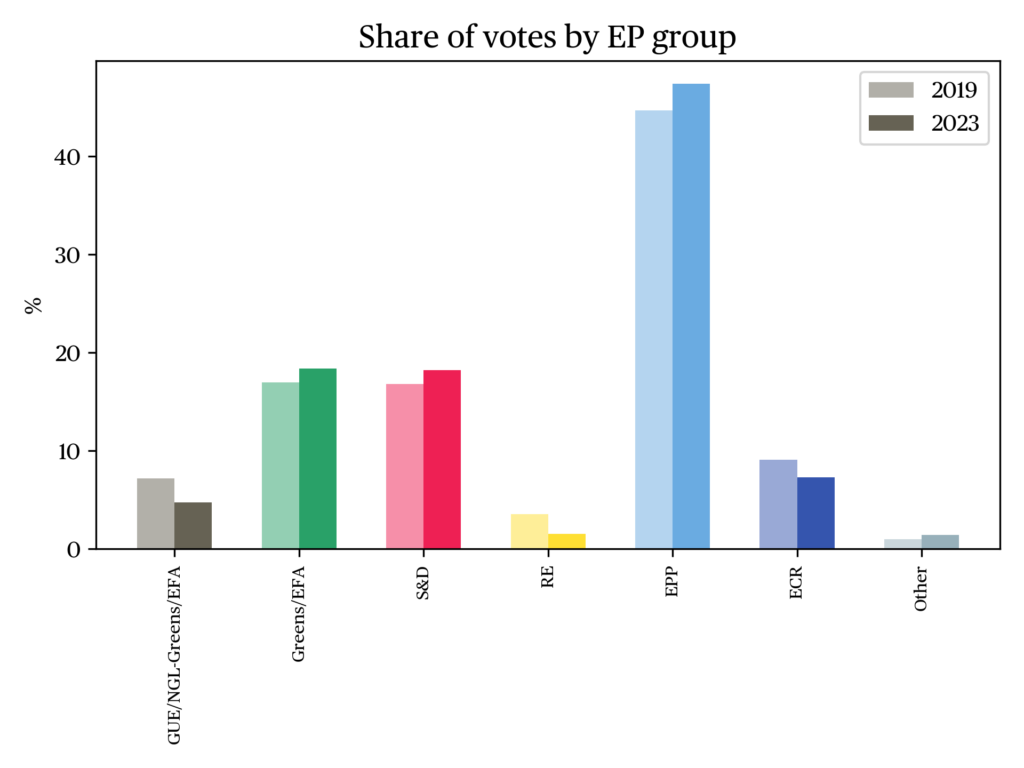
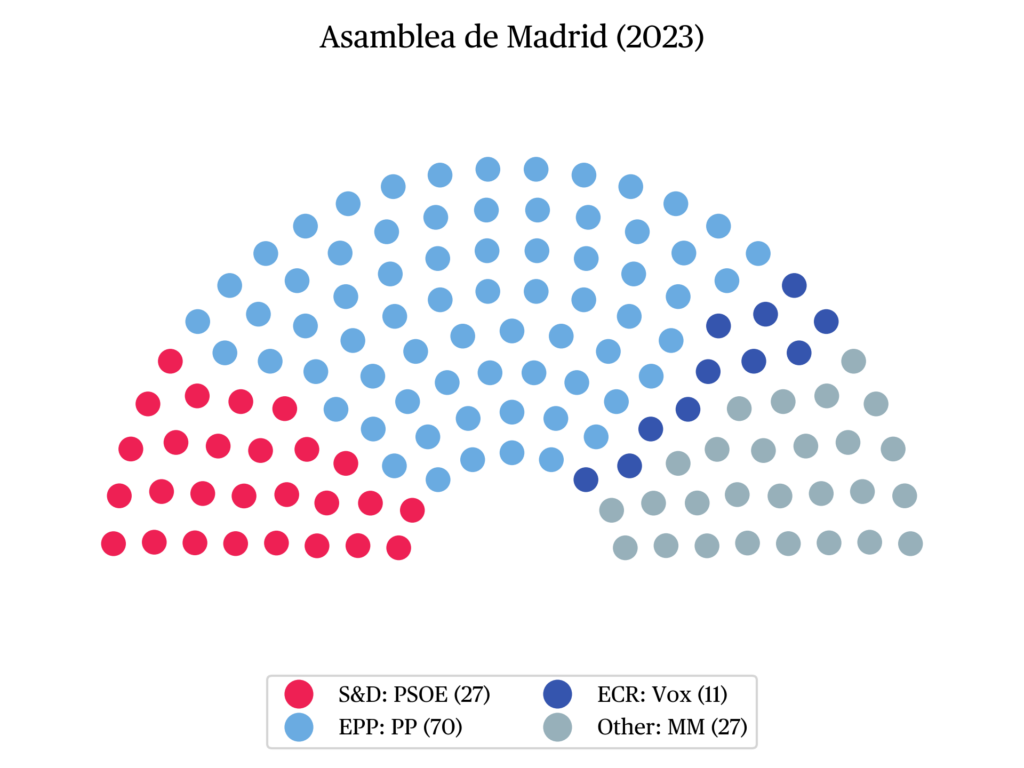
citer l'article
Francisco Cabezuelo, Regional election in Madrid, 28 May 2023, Jun 2024,
à lire dans cette issue
voir toute la revue





